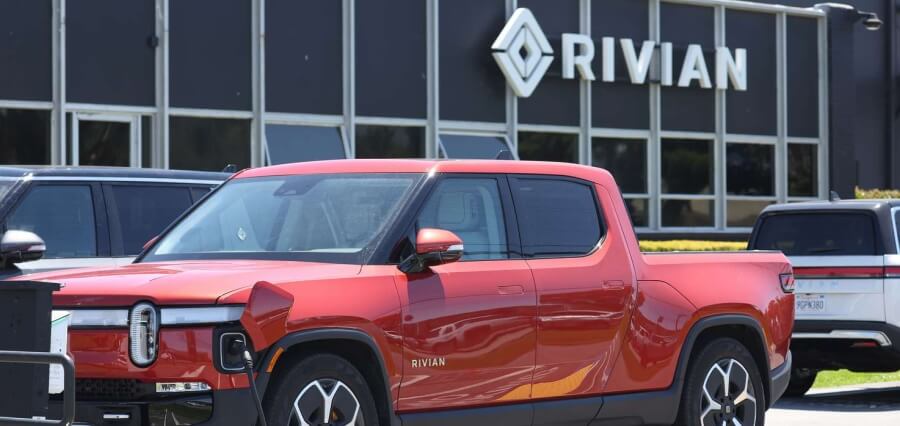Due to the ongoing demand for its trucks and SUVs, Rivian Automotive increased its production estimate for the entire year by 2,000 cars to 54,000 units on Tuesday. This caused company shares to rise 4% in tumultuous after-hours trade.
For an industry hurting from the double whammy of high inflation that has stifled customer appetite and price reductions at market leader Tesla to spur demand, Rivian’s optimistic prognosis is a little bright spot.
Tuesday, smaller competitor Lucid lowered its manufacturing estimate “to prudently align with deliveries,” which resulted in a 4% decline in its stock price. It now intends to produce 8,000–8,500 cars this year, down from an earlier estimate of more than 10,000.
In a interview, Rivian Chief Executive RJ Scaringe stated, “I’m actually surprised at how much we’ve seen others pull back.” “I think it’s going to create, unfortunately, somewhat of a vacuum of products in the market.”
According to him, Rivian’s investment strategy for the less expensive R2 cars that the business plans to introduce in 2026 is unaffected by “shifts in buying behaviour beyond the tail end of 2023”.
“Rivian demonstrated perseverance,” said Alec Lucas, a Global X analyst. “Rivian appears to be benefiting from a more favorable commodity pricing environment, order book realization and progress toward scale.”
The 2023 results for Lucid, according to him, “were reflective of efforts to scale production as well as an ongoing restructuring initiative.”
Starting prices for cars at Lucid, supported by Saudi Arabia’s Public Investment Fund, and Rivian, funded by Amazon.com, exceed $70,000. Though far more expensive than the base Model S, which starts at about $38,000, it is comparable to the premium car from Tesla.
Rivian has refocused its efforts from price reduction to in-house manufacturing of its Enduro powertrains in an effort to reduce expenses and decrease dependency on suppliers.
The company previously stated that sales of its more costly SUVs have been far higher than those of its R1T pickup truck, which has resulted in an increase in the average selling price of its cars.
It was disclosed last month that third-quarter deliveries were higher than anticipated by the market.
In addition, Rivian announced on Tuesday that it will no longer grant exclusivity to Amazon, its largest shareholder, for its electric delivery van. This move will allow the company to serve a wider global client base, while simultaneously reiterating its pledge to complete Amazon’s order for 100,000 vehicles by 2030.
The business did not identify the other clients it was in discussions with regarding the use of the Rivian Commercial Vehicle platform, which drives its electric delivery vans.





